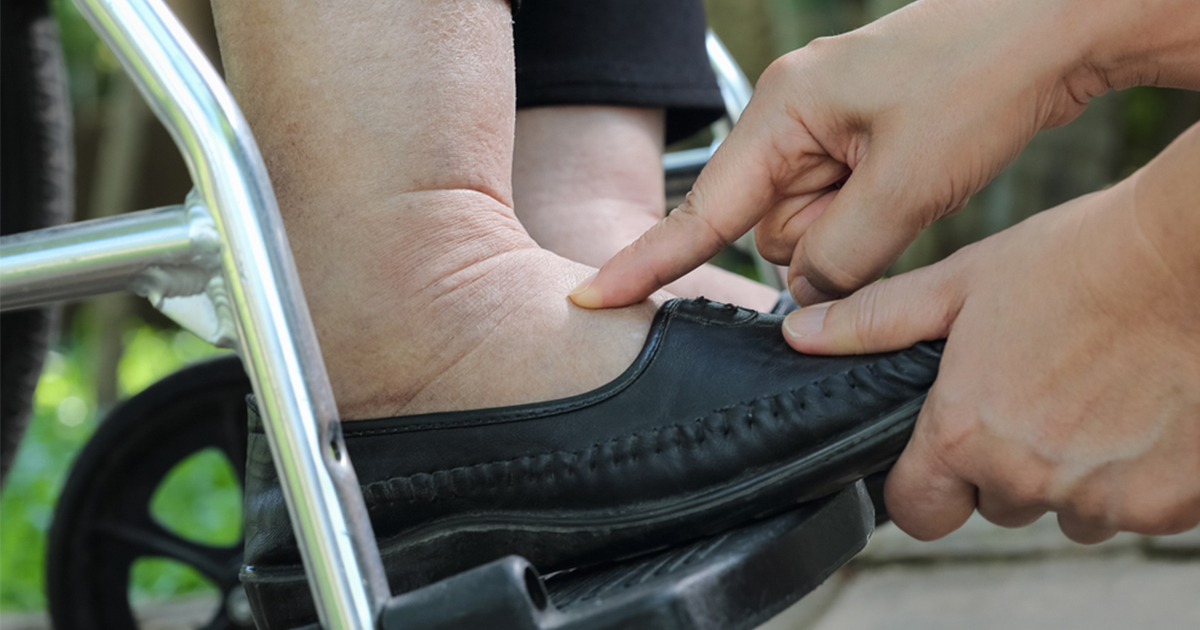Ways to Prevent Swelling

Swelling is one of the common signs for people living with kidney problems. It often indicates the kidneys do not remove excess fluid. Swelling can happen in ankles, feet, or any body part. It is rather uncomfortable because it can affect walking or cause shortness of breath.
There is an easy test to get an idea if one has swelled. Press on a bony area on the lower legs for around 5 seconds. Observe any pit formed, and if there is a dimple, note the depth of the pit and the time required to rebound. For example, a 2mm pit with immediate rebound may indicate mild swelling.
There are some ways to avoid this discomfort:
1. Avoid sodium in the diet
Sodium can cause fluid retention. A high sodium diet can build up excess fluid in the body. Limit sodium intake by adding more fresh food and cooking our own meals. Using herbs and spices to replace salt is also a great trick to lower sodium intake.
2. Self-checking
There are some simple measurements we can do at home as an early detection of swelling. High blood pressure and weight gain can indicate our body retaining excess fluid. Monitoring blood pressure and weight daily can help us detect any change. Preferably doing these self-checks at the same time every day to get the most accurate numbers. If there is a drastic change, especially comes along with other signs of discomfort, talk to healthcare providers.
Many other lifestyle changes can help prevent swelling from kidney problems. Ask the care team which lifestyle choices are the most suitable and how the tips can help manage swelling.
- * All research and clinical data should be used as reference purposes only, results may vary.




